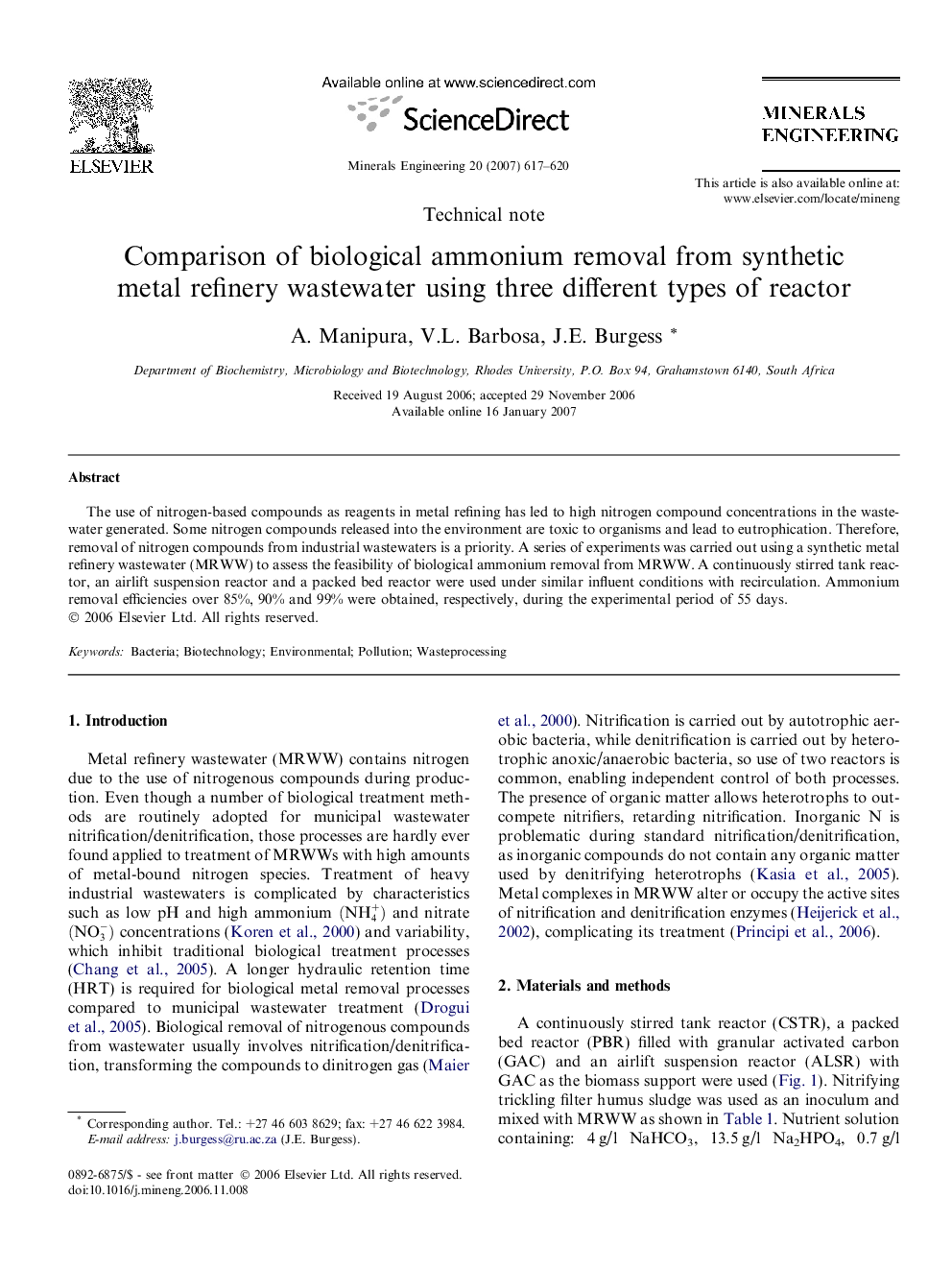| Article ID | Journal | Published Year | Pages | File Type |
|---|---|---|---|---|
| 234863 | Minerals Engineering | 2007 | 4 Pages |
The use of nitrogen-based compounds as reagents in metal refining has led to high nitrogen compound concentrations in the wastewater generated. Some nitrogen compounds released into the environment are toxic to organisms and lead to eutrophication. Therefore, removal of nitrogen compounds from industrial wastewaters is a priority. A series of experiments was carried out using a synthetic metal refinery wastewater (MRWW) to assess the feasibility of biological ammonium removal from MRWW. A continuously stirred tank reactor, an airlift suspension reactor and a packed bed reactor were used under similar influent conditions with recirculation. Ammonium removal efficiencies over 85%, 90% and 99% were obtained, respectively, during the experimental period of 55 days.
